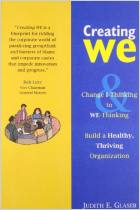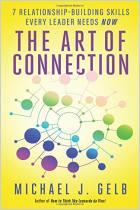
Recommendation
Conversations go far beyond mere exchanges of information. Conversations affect your relationships, worldview and culture. Good conversations foster stronger, positive relationships; bad ones can destroy relationships. Organizational anthropologist Judith E. Glaser discusses how to move beyond fear and distrust to have more meaningful, useful discussions. She categorizes conversations on three levels, from routine to elevated. Her focused coverage of neuroscience will hold your interest, though it lacks practical examples. The most helpful section is the short entry on using the three R’s – “Reframing, Refocusing, Redirecting” – to work through difficult conversations. getAbstract recommends Glaser’s insights to supervisors, managers and employees who want to improve their workplace relationships and increase their productivity.
Summary
About the Author
Judith E. Glaser, an organizational anthropologist, is the CEO of Benchmark Communications and the chairman of The Creating WE Institute.
























Comment on this summary or Diskussion beginnen